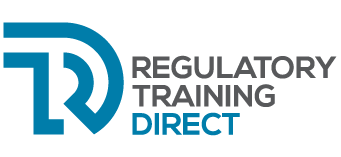current affairs
Issue 255, 1st February – 28th February 2025
Hi There
Training news
New Course: Medical Device Regulation Fundamentals. (Australian regulations) This 1.5 hour course is available both LIVE and also pre-recorded eLearning. The course is conducted by Gary Burgess, who spent 9 years at the TGA in the medical device section. Read more about the course and book here..
Advertising medicines and medical devices. This course is now available, after extensive revisions to our original course. It now covers all non-prescription medicines, including complementary medicines, as well as medical devices. Presented by Leanne McCauley, who was part of the TGA’s advertising unit. The course agenda is here and you can see Leanne’s experience here.
Stability studies. See story below. The TGA is conducting compliance reviews. This is relevant to complementary medicines. Our course is conducted by Andrew Lattimore, ex TGA. Course details here.
Advertising and social media. This course is continuously updated as “greenwashing” and “natural” claims are hot topics, as is the non-disclosure by “influencers” when they are paid to promote a product. Details are here.
We now have just under 40 regulatory affairs courses, covering regulations in Australia, New Zealand and the USA. You can view them here and book online here
Regulatory affairs news
Complementary Medicines and Medical Devices
Ingredients permitted in listed complementary medicines – changes just published:
* liver-related warnings when required for more than one ingredient in the product
* addition of new ingredients: calcium propionate, methyl acrylate, methyl methacrylate and methacrylic acid copolymer dispersion (30 per cent), and polyacrylate dispersion (30 per cent) (restrictions apply).
* numerous changes to existing ingredients.
Read the summary of the changes here, and the revised list of permitted ingredients is here.
TGA guidelines. Guidelines are not law, but are useful guidance documents. As the TGA states “.. Guidelines are not mandatory requirements but rather show sponsors what a TGA delegate considers in a compliance review. However, there may be individual circumstances that justify a departure from these Guidelines and in any circumstance the TGA will consider the merits of each case against the regulatory requirements.” This statement is at the beginning of the probiotic guidelines referenced below.
Probiotics
* Demonstrating the quality of listed probiotic medicines”. This TGA guideline was updated on 25 February. This is a very useful document relevant to any company supplying probiotics, including in countries outside of Australia. The change history of this document indicates it was updated to remove the words “the label must state the name of any stabilisers and other excipients”.
Recalls procedure – don’t forget!: reforms to recall procedure will commence early March 2025. The new procedure is known as the Procedure for Recalls, Product Alerts and Product Corrections (PRAC). TGA explains that “… new terminology replaces the confusing categories of ‘recall actions’ and ‘non-recall actions’ with one overarching category called ‘market actions’.” Last week the TGA published guidelines “What you need to know” based on a recent webinar.
Nitrosamine impurities – update to acceptable limits. This is relevant to some herbal medicines. – see TGA website
Therapeutic vaping goods: The TGA has just conducted two webinars providing guidance on the notification form. When the webinar notes are released we will provide a link in our newsletter.
Stability testing of biotechnological products – updated in line with EU requirements on 20 February, Learn more from our stability testing course – details above.
Stability requirements for listed medicines: the TGA is now conducting compliance reviews. TGA states that a sponsor of a listed medicine should ensure that
*prior to or at the time of listing, you hold information or evidence to show that your medicine’s specifications will be maintained under the conditions set out on the medicine’s label until the medicine’s expiry date,
* you review the data that you hold with respect to the stability of your medicine against relevant requirements,
* the information or evidence you hold is substantiated by robust scientific justifications; and
* where there is an applicable standard(s), your medicine conforms to that standard(s). Read more here.
All the more reason to book our stability testing course – see details above. It is conducted by ex TGA GMP auditor Andrew Lattimore
Changes to “exempt goods” – tampons and menstrual cups. These are exempt goods, not requiring to be included on the Australian Register of Therapeutic Goods (ARTG). However they must comply with standards set out in the relevant therapeutic goods orders (TGO 103 and TGO 99). The TGA is proposing that sponsors of these products should notify the TGA of the products they are supplying. Consultation is ongoing, latest notice is here.
Poisons schedules – Camellia sinensis extract (green tea extract), and amygdalin, hydrocyanic acid and Wild Cherry Bark. Green tea extract: read about changes here. Amygdalin and hydrocyanic acid: read about the changes here.
Medicinal cannabis hub has been updated. Includes
* access pathways and usage data
* information for patients
* information for health professionals
* information for importers, exporters and manufacturers
* vaping devices: Information for importers, exporters and manufacturers
* medicinal cannabis vaping devices that are approved in Australia
* importation and the traveller’s exemption.
How to cancel a product from the Australian Register of Therapeutic Goods – updated guidance. TGA advises “Do not request cancellation if your product is still being supplied in (or exported from or imported to) Australia.” If you do want to cancel your product, the updated form and guidance can be found here.
Consultations – nothing open now
Compliance action
* Nothing much this month! You can always keep up to date on the TGA’s Compliance and Enforcement Hub.
Safety alerts
Nothing relevant
Recalls – none this month
Botanical Adulterants Prevention Programme (BAPP) and other adulteration stories.
* The Undisclosed Presence of Excipients and Diluents in Botanical Extracts
High levels of undisclosed excipients and diluents may give buyers and consumers a misleading sense of botanical extracts’ strength and composition. Read here
* Unmasking food frauds and the way forward for global food importers: published by Dr Vikas Kumar Singh in LinkedIn
To access freely available botanical and technical resources from BAPP, click here
Foods
New – PDF document containing all of the Food Standards Code. This is very useful as it is searchable and contains all the standards and schedules. Access it here.
Novel foods February 2025 update
* Green tea extracts have been added to the recent update. This does not include green tea infusions, as they have been traditionally been taken for centuries. The opinion relates to concentrated green tea (Camellia sinensis) extracts with high catechin levels. There is a note added “This view does not relate to food additive use of green tea extracts. Any use of green tea extracts as a food additive requires authorisation under the Code”
NOTE: these views are recommendations of the Advisory Committee on Novel
Foods. The views are not legally binding.
IMPORTANT: this relates to foods. Complementary medicines are NOT foods. Concentrated green tea extracts ARE permitted in complementary medicines.
* Grape puree (as liquid puree or its dehydrated powder form) produced from fermented and heat-treated grape pomace has been determined NOT to be a novel food.
* Silkworm pupae – the view is that this IS a novel food.
To read the record of views formed by the advisory committee, go here. The rationale behind the green tea decision is on pages 22 – 23.
New applications and proposals
A1324 – 3-fucosyllactose as a nutritive substance in infant formula products using genetically modified Escherichia coli K-12 . Assessment report is here
Withdrawn applications
none this month
Amendments to the food code
Vitamin Ks (as menaquinone) as a permitted form of Vitamin K in foods for Special Medical Purposes. Approval report is here.
Approvals
* M1022 2023 MRL Harmonisation Proposal – To consider varying maximum residue limits (MRLs) for residues of specific agricultural and veterinary (agvet) chemicals that may occur in food commodities. FSANZ
* Application A1301 – Triacylglycerol lipase from GM Komagataella phaffii as a processing aid To permit triacylglycerol lipase from genetically modified Komagataella phaffii to be used as a processing aid in bread and bakery products. FSANZ
* Application A1303 – Food derived from herbicide-tolerant sugar beet line KWS20-1
Published – for the sale and use of food derived from sugar beet line KSW20-1, genetically modified to tolerate the herbicides dicamba, glufosinate and glyphosate FSANZ.
Call for submissions:
none this month
Recalls
1010 SDL Choc Cookie Dough – due to presence of an undeclared allergen(s) (peanuts). FSANZ
Strangelove Beverage Company Pty Ltd – Salted Grapefruit 540 mL – due to unintended fermentation FSANZ
Mars Australia – MasterFoods Creamy Chicken & Mushroom Cooking Sauce –
presence of an undeclared allergen(s) (Egg) – FSANZ
The Little Dough Co. Mini Fruit Hot Cross Buns x9 – presence of foreign matter (Glass). FSANZ
Lt Johnny’s and Caterina’s Pizza & Gourmet Food – Margherita and Prosciutto Pizza 12 inch – presence of an undeclared allergen(s) (Soy, Sulphites and Cashew). FSANZ
Additional food news contributed by Gary Kennedy from Correct Food Systems:
Anticipated changes in 2025:
Major changes in polices and standards are on hold until the outcome of the Federal election is decided. Below are some possible changes, that may be enacted, by a new federal government and its ministers.
* Health Star Ratings
It is likely that Health Star Rating system will be mandated for retail packaged food, rather than the current a voluntary scheme.
* Added sugar in Nutrition Panel
The Australian Nutrition Information Panel may be altered in the near future to introduce a new line- ‘added sugar’ in addition to the existing line – Sugar (FSANZ Proposal P1058).
* Alcohol kilojoule information
It is likely that packaged alcohol will have to declare energy information – Kilojoules
(FSANZ Proposal P1059).
* Alcohol claims on alcohol for carbs and sugar
A decision on “Low carb ” beer and such claims for alcohol is pending. (FSANZ Proposal 1049).
* SQF Version 10
Version 10 of SQF is being drafted. The new edition is likely to be released in the first half of 2025., with an implementation period of 6 months.
For more information contact Gary or Lisa at Correct Food Systems:
Exciting news: Gary Kennedy, who conducts our food regulatory courses, has been awarded the status of Life Fellow of the Australian Institute of Food Science and Technology (AIFST), We are privileged to have Gary on our team. He conducts our three food courses listed here https://www.regulatorytrainingdirect.com/#course-summary.
New Zealand Food safety insights, emerging risks, and current issues bulletins:
13 February bulletin is here
30 January bulletin here.
New Zealand Food recalls since the last newsletter:
Nothing new, read recall list here.
Cosmetics and TGA listed sunscreens
Sunscreen ingredient review. TGA has published a literature review of the safety of sunscreen ingredients. One conclusion was “Clinical advice remains that the benefits of sunscreen continue to far outweigh any risks.” Each year around 2,000 people die in Australia from skin cancer. read it here or at the TGA consultation hub. If you intend to supply a sunscreen in Australia, you need to aware that it could be classified as a cosmetic (most secondary sunscreens) or a therapeutic sunscreen (primary sunscreen). Read about the course here.
“I have just found out that I have to reformulate my sunscreen!”. Another very informative article by John Staton, with consideration given to regulatory requirements in different countries. read it on LinkedIn.
Australian Tax Office ruling on sunscreens. The ATO has clarified which sunscreens will be exempt from Goods and Services Tax (GST) – in a nutshell, primary sunscreens that have been submitted to the TGA. However, secondary (cosmetic) sunscreens are not exempt. The ATO states “To be GST-free, a sunscreen product must be ‘marketed principally for use as sunscreen’.” Source: Australian Taxation Office
Helpful tips on how to search the Australian Inventory of Industrial Chemicals database of about 40,000 chemicals – new video has been published here
Consultation: feedback requested on “clarity of the information requirements that will be added to the form for an AICIS assessment certificate application for a chemical that is a ‘designated fluorinated chemical’ – will an applicant be able to clearly understand these requirements? Source: AICIS
New assessment statements as at 4 February: 12 chemicals listed here, many are fragrance ingredients.
Completed evaluations – none published this month
Chemicals added to the Inventory 5 years after issue of assessment certificate (obligations to provide information apply) – as at 25 February: 5 chemicals, listed here.
Variation of Inventory listing following revocation of CBI approval – as at 21 February: one chemical CAS 75285-56-2 – read here as at 5 February: one chemical, CAS 3067552-97-7, read here
Chemicals added to the inventory following issue of assessment certificate as at
Correction of chemical names – as at 18 February – 50 chemicals listed here
Additional cosmetics news contributed by Rita Sellars of pH Factor:
ACCORD, the peak industry body representing manufacturers and marketers of hygiene, cosmetic and specialty products, has just released “Best Practice Guidelines: Product Stewardship for Small-format Cosmetic Packaging in Australia“. Download the guidelines here.
ACCC and similar
ACCC has published the list of their compliance and enforcement priorities for 2025-26 – read here.
The ACCC has denied authorisation sought by the Infant Nutrition Council for an industry code which seeks to restrict the advertising and promotion of infant formula. The ACCC considers that the effectiveness of the MAIF Agreement is being undermined by several factors including its voluntary nature, its limited scope, and restrictions on its ability to capture the breadth of modern digital marketing methods. Read more here.
Environmental claims. Following on from the ACCC’s Making environmental claims: A guide for business, the Australian Association of National Advertisers (AANA) – the marketing industry body in Australia – has published their guidelines for advertisers “Environmental Claims Code” that is free to download here.
Infant sleep products – safety standard amended. Not really relevant to this newsletter, but you may like to read about this here.
Published by Regulatory Training Direct www.regulatorytrainingdirect.com
Providing regulatory training courses for complementary medicines, GMP, foods, cosmetics dietary supplements.
Contact us to become a sponsor of one of our newsletters.
This newsletter is sent at no charge. You are welcome to forward this to any colleagues who may find it useful. To receive this newsletter regularly click this link
Get in touch
info@regulatorytrainingdirect.com



